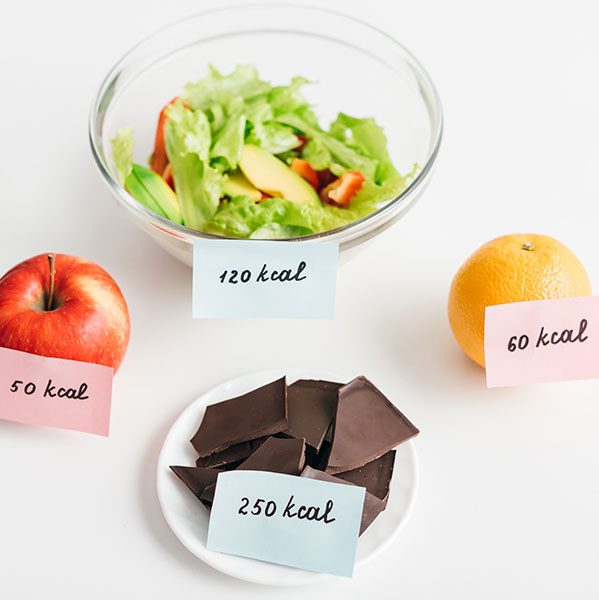How to Boost Your Metabolism
the slowing of metabolism is not the reason for excessive weight gain
How to Boost Your Metabolism
A ton of people ask “how do you boost your metabolism” because there are many people who blame their weight loss (or lack thereof) on a slow metabolic rate. However, what exactly does this mean? Does metabolism really cause the problem? If yes, is it possible to boost your metabolism to generate more calories burned?
It’s true that the rate of metabolism is closely linked to weight gain. But, contrary to what many believe, the slowing of metabolism is not the reason for excessive weight gain.
While your metabolism affects the body’s energy needs, the amount you consume and drink, as well as the amount of physical activity you engage in, are the elements that determine your weight. Thus, that leads you to understand the factors that lead to a strong answer to the question – How to Boost your Metabolism.
What is Metabolism?
Metabolism is the method in which your body transforms the food and drinks you consume into energy. Through this process, the calories found in beverages and food are paired with oxygen in order to produce the energy your body requires to perform.
Even when you’re in a state of rest, your body requires energy for its “hidden” tasks like breathing and circulating blood, controlling hormone levels, and forming and healing cells. The amount of calories the body consumes to perform these essential functions is referred to as the basal metabolic rate, also known as metabolism.


How Do You Calculate Your Metabolism
Several factors determine your individual metabolism. For instance:
The size of your body and the composition:
The people who are bigger (or have more muscles) burn more calories even when your body is at rest.
Gender:
Men generally have less body fat and have more muscles than women with similar weight and age. That means men tend to burn more calories.
Age:
As you age, the amount of muscle tends to reduce, and fat is the main source of your weight. This slows down burning calories. The body’s energy needs for its fundamental functions remain fairly constant and don’t change easily.
Alongside your metabolic rate, two other factors affect the number of calories you burn per day:
Processing food (thermogenesis):
Absorbing, digesting, transporting, and storing food also consumes calories. Around 10 percent of calories from carbohydrates and proteins you consume are utilized during digestion and absorption of nutrients and food.
Body Movements
Exercise and physical activity like playing tennis, walking to the shop, chasing the dog, or any other activity that you do, make up all the other calories that your body uses up every day. Physical activity is an important variable that determines the number of calories you consume each day.
How to Boost Your Metabolism
The exercises that you perform throughout the day but do not include any deliberate movements are termed as Non-Exercise Activity Thermogenesis (NEAT). It involves walking from room to room or even doing activities like gardening. NEAT represents about 100-800 calories consumed each day.
So, how do you boost your metabolism?
Physical Activity
Although you have no control over the rate of your metabolic rate, you can regulate the number of calories you consume by your level of physical exercise. If you keep yourself active, you will burn more calories.
Actually, some people who are believed to have a high metabolism are likely to be more active.
Any extra movement helps burn calories. Try to find ways to walk or move around for a couple of minutes longer each day. Taking the stairs more frequently and parking further from the supermarket are effective methods to burn calories. Even simple activities like gardening or washing your car, as well as doing household chores, can help to burn calories and aid in weight reduction.
Aerobics
Aerobics is another most effective method to burn calories. It can be done through activities such as biking, walking, and swimming. As a general rule, ensure that you include at minimum 30 minutes of physical exercise during your daytime routine.
Experts recommend strengthening exercises, like lifting weights at least two times every week. Strength training is crucial as it aids in building muscles. Muscle tissue uses up more energy than fat tissue.
Although a person doesn’t have any control over the genes that govern components of metabolic rate, you can find methods to speed up the rate at which your body is able to process the calories.
Eating at regular times
The body depends on regularity and balance. Regular eating can help to maintain a healthy metabolism.
If you tend to eat a lot, go for extended periods of time without eating. The body might burn calories more slowly and accumulate more fat cells. When eating regularly, it is possible to reduce this risk. Ideally, you should eat a variety of smaller meals or snacks around 3 to 4 hours apart.
Consuming enough calories
Many people skip meals in order to shed weight. But, this could negatively affect metabolism. Foods that are not full of calories can also result in the same thing.
Insufficient calories intake can make a person’s metabolism decrease. Women of all ages require between 1,600 and 2,400 calories per day. Based on their level of physical activity, men require between 2,000 and three times the amount.
Drinking green tea Although studies haven’t conclusively established this, some research suggests that green tea extract may help in fat metabolism promotion.
Green tea is an alternative to sugary juices, and it will help ensure that people are getting enough fluids throughout the day. Although the benefits of a healthy metabolism aren’t known for certain, having 2 cups of tea a day can be beneficial to a healthy diet.
Reducing stress
Stress influences hormone levels and can trigger the body’s ability to release more cortisol than normal. Cortisol is a hormone that regulates appetite. In 2011, researchers observed elevated cortisol levels in patients with disordered eating.
Unhealthy eating habits, such as restrictions on food intake and other weight issues, could result in unhealthy eating habits which may disrupt metabolism. You can also link stress to sleep quality that can impact metabolism.

Takeaway
You can boost the rate of metabolism by making adjustments to your lifestyle and diet.
From decreasing stress to incorporating strength training in the workout routine, there are many methods to boost your metabolism. It is best to understand your body before making any changes to your diet or changing your exercise routine.
